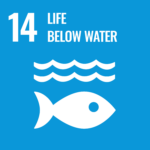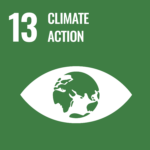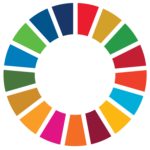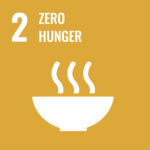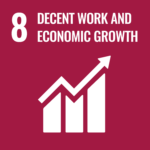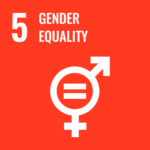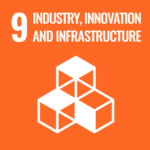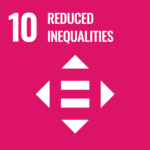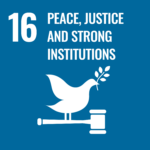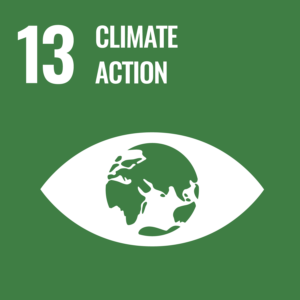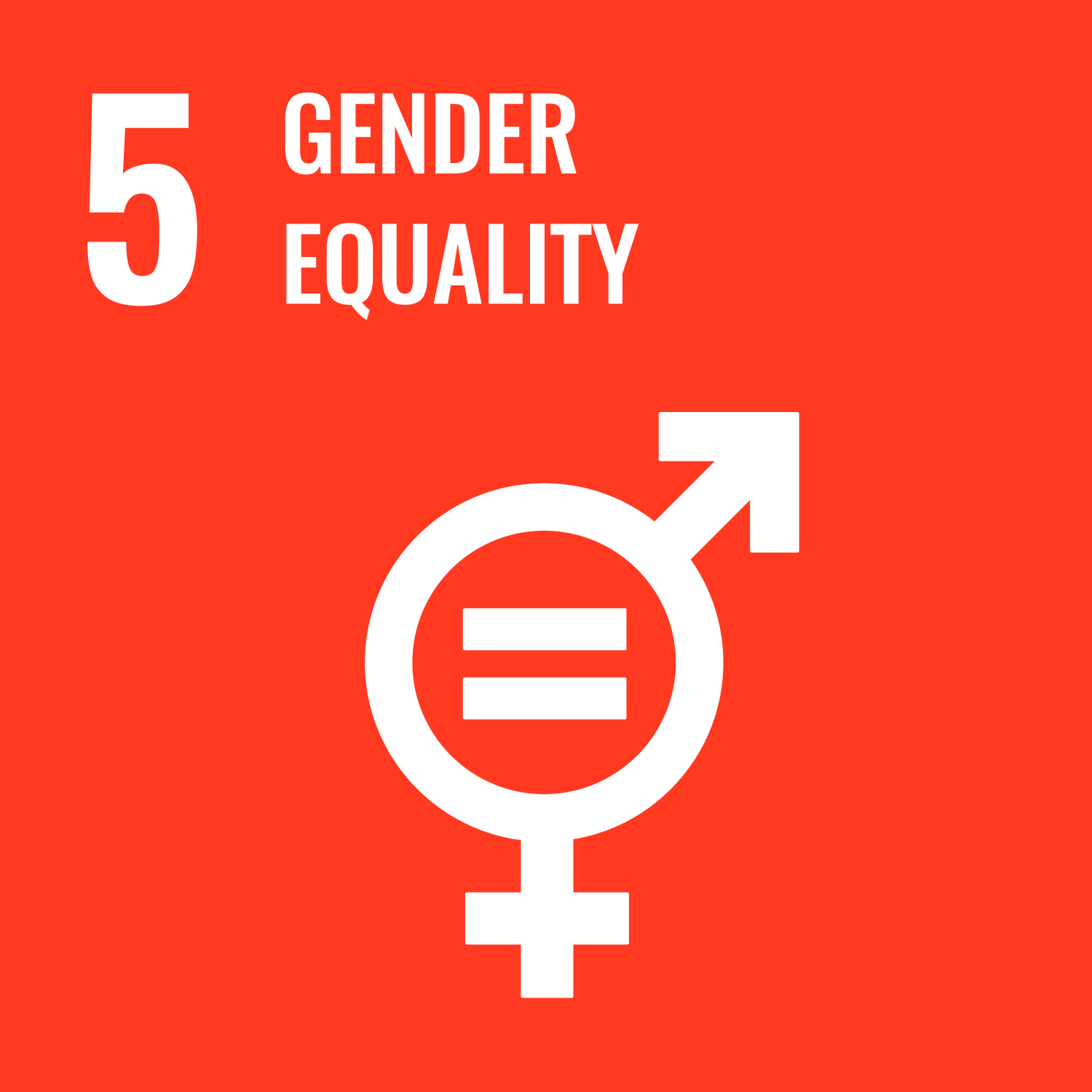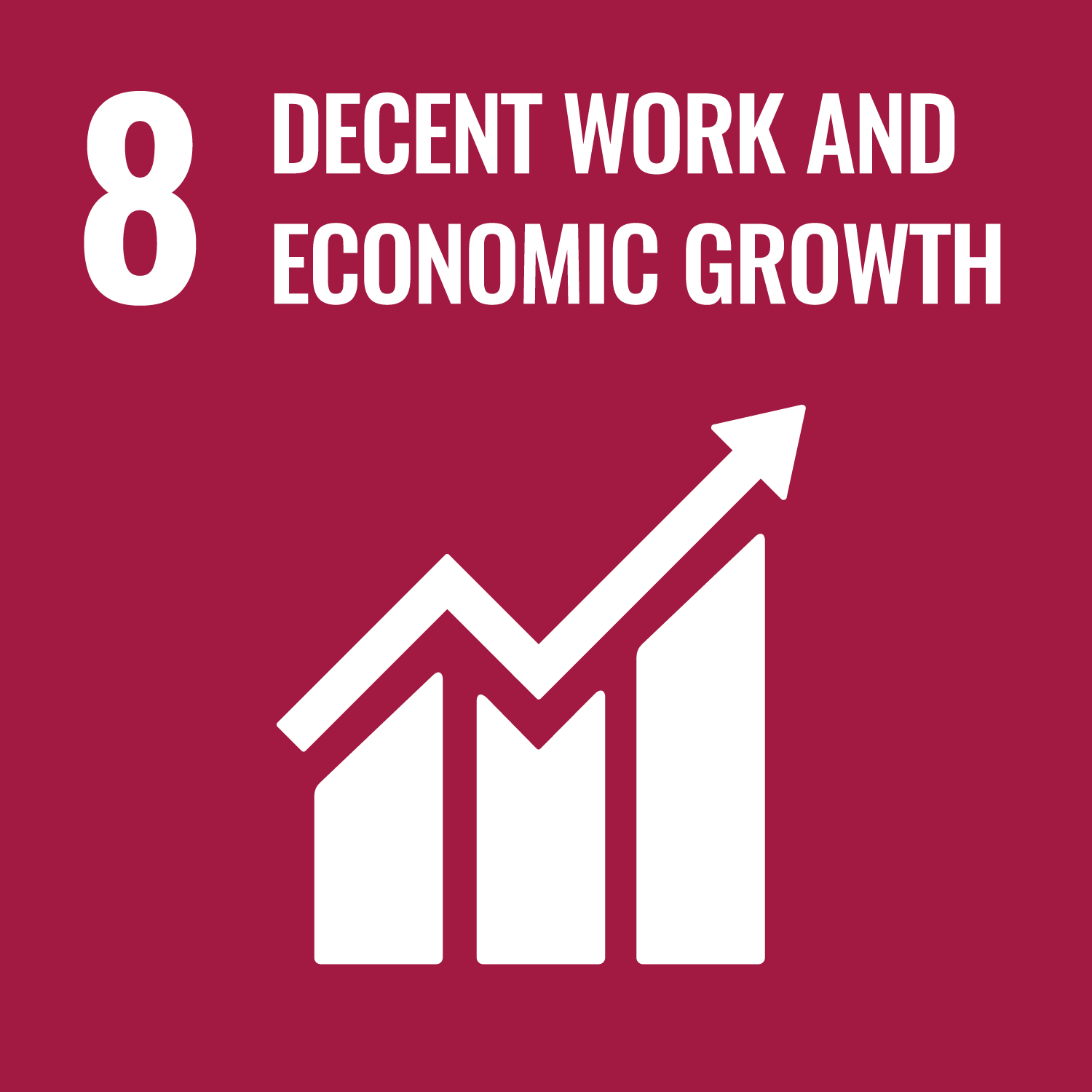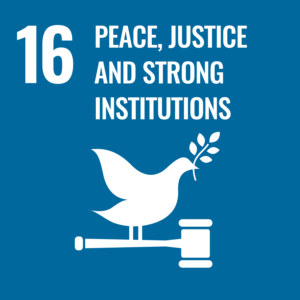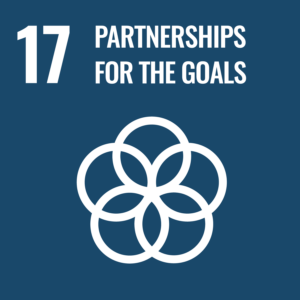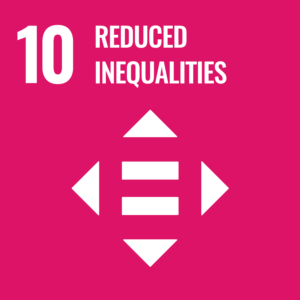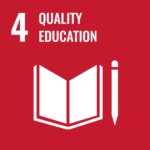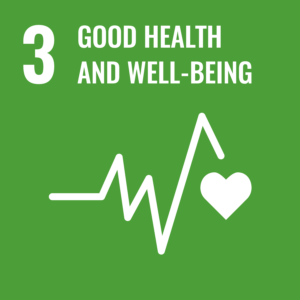Video recordings
In cases where access is restricted to people with a TUM ID, we have only limited permission to publish the material. For this reason, we kindly ask you to refrain from individual requests to make certain recordings available to everyone.
The Department of the Environment is not responsible for the content of the lectures. The opinions of the lecturers do not represent those of the Department of the Environment.
summer semester 25

This lecture explores the critical interrelationship between climate change and economic inequality through recent empirical and model-based assessments. Multiple integrated assessment models demonstrate that climate change exacerbates existing economic disparities both within and across countries. Key findings show that without additional climate action (3.6°C warming scenario), global inequality could increase significantly by 2100, with the Gini index rising by up to six percentage points in vulnerable regions like Sub-Saharan Africa. Climate impacts are regressive, disproportionately affecting lower-income populations, while wealthier households experience lower relative damages. Importantly, policies aligned with the Paris Agreement’s 1.5°C target could reduce long-term inequality increases by approximately two-thirds. Though such policies might slightly increase inequality in the short term, this effect can be counterbalanced through equal per-capita redistribution mechanisms, potentially lowering the Gini index by almost two points. The research provides robust evidence that well-designed climate policies can simultaneously address both climate stabilization and economic inclusion. These findings emphasize the importance of considering distributional aspects when formulating climate policy, as properly designed interventions can transform climate action into an opportunity for promoting greater economic equality rather than exacerbating existing disparities.
Johannes Emmerling is a Senior Scientist at EIEE and co-leads its Low carbon pathways unit. He was a Senior Researcher at Fondazione Eni Enrico Mattei (FEEM) between 2012 and 2018. Johannes holds a Ph.D. from the Toulouse School of Economics (TSE), a M.A. in Economics from the Free University Berlin and a B.Sc. in Economics from the University of Heidelberg. He was a postgraduate fellow in Development Cooperation at the German Development Institute, Bonn. He has been working amongst others at the Social Science Research Center (WZB) Berlin, the Gesellschaft für Internationale Zusammenarbeit (GIZ), as Lecturer at Université Toulouse 1 Capitole, and as Consultant for the Organization of American States (OAS), the European Bank for Reconstruction and Development (EBRD), the German Institute of Metrology (PTB), the Asian Development Bank (ADB), and the World Bank. He is co-leading the development of the integrated assessment model WITCH. His main areas of research include Climate Change and Energy economics, Risk and Uncertainty, Welfare Economics and Development. He has co-authored over fifty articles in peer-reviewed journals and is an Associate Editor of the Public Finance Review. He is a passionate cyclist and plays keyboards in various formations.
Lecture Recording

 Shared Session with Protect the Planet
Shared Session with Protect the Planet
Nadin-Shirin Zimmermann is a visionary leader with a strong track record in developing digital and sustainable business models. As an innovation expert, she has helped companies create and scale diverse business ideas, identify new market opportunities and reach new customer segments. With deep insights into market trends and a broad network across startups and corporates, she provides strategic advice and hands-on support to foster circular economy innovation. Her strong commitment to the Innovation Ecosystem extends to her roles as advisory board member, business angel, podcaster, guest lecturer, TUMmentor and startup jury member, where she bridges entrepreneurial experience with the latest economic insights to inspire the innovation landscape. Currently, she is expanding her expertise through an executive program in Sustainable Innovation at Harvard University, deepening her knowledge in corporate responsibility, circular economy, and sustainable business models to help shape a more future-ready and ecologically responsible corporate world.
Lecture Recording
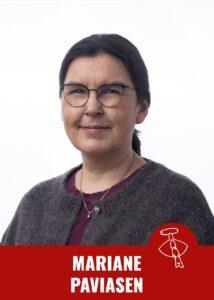
This lecture explores the profound impact of global technology demands on Indigenous communities, focusing on the proposed rare earth and uranium mining project near Narsaq, Greenland. It examines how extractive projects — often promoted as essential for the green transition — can threaten traditional ways of life and fragile ecosystems. Particular attention will be given to how the local community, especially Indigenous residents, has responded to these challenges.
Mariane Paviasen Jensen is a Greenlandic politician and environmental activist. She founded the “Urani? Naamik” (“Uranium? No”) movement in 2013 to oppose uranium mining near her hometown of Narsaq. The proposed Kuannersuit (Kvanefjeld) mining project, led by the Australian company Greenland Minerals Ltd, sparked widespread local resistance due to its environmental and cultural risks. Elected to the Greenlandic Parliament in 2021 as a member of the Inuit Ataqatigiit party, Paviasen has been a leading voice for Indigenous rights and environmental protection. Her activism contributed significantly to Greenland’s 2021 decision to ban uranium mining, effectively blocking the Kuannersuit project.
Lecture Recording

As a means to reduce the pollution and resource use following from consumption, attempts are made to motivate consumers to switch to less environmentally harmful and resource consuming products and increasingly also services. One of the increasingly popular tools is to label products and services in such a way that consumers can distinguish the least harmful from others and, hence, are able to choose them. In this presentation, I will present and discuss research on the effectiveness of sustainability labelling as a means to influence consumer decision-making and behavior and environmental outcomes.
John Thøgersen is professor of economic psychology at Aarhus University, Denmark, Department of Management, where he coordinates the Marketing and Sustainability Research Group. He is also connected to MAPP – Centre for research on customer relations in the food sector. His research focuses on consumer willingness to reduce their climate footprint, responses to eco- and climate labelling, the establishment of sustainable lifestyles, and drivers and impediments for energy renovation and for buying organic food. He has published extensively on sustainable consumption in top journals, edited volumes, and recently a monograph on Edward Elgar. He is a Fellow of IAAP, editor of Journal of Consumer Policy, published by Springer-Nature, and member of several editorial boards, including Journal of Environmental Psychology.
Lecture Recording
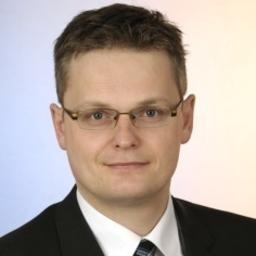
Plastic packaging has become an integral part of everyday life. Buying long-life food, transporting everyday products, or protecting them is difficult without such packaging. The consequence of our actions is that more and more plastic packaging is needed and, therefore, produced yearly. Plastic packaging is a success story. It is light, cheap, available in various shapes and qualities, …. and has a long shelf life. But that is precisely one big problem: Due to the long shelf life, we have a significant problem if the plastic packaging is uncontrolled in the environment. In addition to being a massive waste of resources (most plastic is petroleum-based), plastic packaging is usually only used once.
Against this background, the lecture will address the following questions: Who is responsible for the flood of plastic packaging? Is plastic packaging really that bad? How can consumers reduce plastic packaging?
In addition to practical examples, various scientific studies on avoiding plastic packaging will also be shown.
Head of Department at the Chair of Marketing and Management of Renewable Resources at the Weihenstephan-Triesdorf University of Applied Sciences on the Straubing Campus for Biotechnology and Sustainability. Thomas Decker has been analyzing the prerequisites and conditions for sustainable consumption for 20 years. To do so, he primarily conducts surveys of consumers and experts. His focus is on applications in agriculture, using renewable raw materials and renewable energies. In addition to his research, he has been lecturing on consumer behavior and markets for renewable raw materials for many years. He also supervises students’ doctoral theses and dissertations.
In addition to his scientific work, Mr. Decker runs a part-time agricultural business. Among other things, he produces grain maize or wheat and experiences the effects of climate change due to changes in his forest.
Lecture Recording
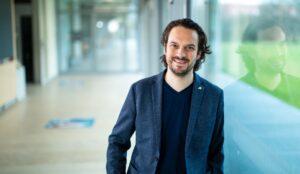
Lecture Recording

Animal experiments are deeply entrenched in basic research, safety testing, and drug development, despite the dramatic advancements in human-based technologies over the past 15 years. While animal research originated in a time with limited alternatives, the 21st century offers innovative human-based methods that provide improved predictability for human diseases, leading to more effective research into causes and therapies. However, the transition to animal-free research is hindered by systemic and regulatory factors.
In contrast to basic research, the regulatory sector has seen significant progress in implementing animal-free methods (NAMs) and reducing animal testing, driven by the pharmaceutical industry and other companies due to the limited predictability, high costs, and poor reproducibility of animal experiments. The failure rate in drug development based on animal testing has remained above 90% for 60 years.
The European Citizens’ Initiative for a cruelty-free Europe has spurred action, with the European Commission announcing steps to accelerate the phasing out of animal testing in both basic research and safety testing. A major project within the European Research Area aims to strengthen animal-free research through financial support and infrastructure. The Commission is also working on a roadmap for animal-free safety testing of chemicals, including pharmaceuticals and cosmetics, based on the NGRA (Next Generation Risk Assessment) approach. Globally, the development of such roadmaps is increasing, exemplified by the US FDA Modernization Act 3.0 and reduction strategies in Germany and Switzerland. The iMPSS (International MPS Society) unites experts to promote and implement human-based research and testing. Successful roadmaps require clear criteria and goals to achieve their objectives.
Dr. Tamara Zietek is an expert in animal-free research, holding a PhD in biochemistry from the University of Cologne and a diploma in biochemistry from the Ruhr University Bochum. Currently, she is the CEO and Head of the Science Department at Doctors Against Animal Experiments (DAAE. In this role, she leads scientific projects promoting animal-free research methods and represents the organization internationally. Dr. Zietek is also the Chair of the European Coalition to End Animal Experiments (ECEAE). She played a key role in the successful European Citizens Initiative for a Europe without Animal Testing and contributes to the development of roadmaps for animal-free chemical safety testing.
Before joining DAAE, Dr. Zietek led a research group at the Technical University of Munich, focusing on developing non-animal models, particularly intestinal organoids. She introduced 3D intestinal organoid models as alternatives to animal experiments. Her research interests include the use of 3D intestinal organoids for studying nutrient uptake and drug effects, and the promotion of New Approach Methodologies (NAMs). She is a member of several scientific committees and international consortia and has published in the field, including on live-cell calcium imaging in 3D intestinal organoids.
Lecture Recording

Tropical forests and forestlands are being claimed – and deforested – for a myriad of interconnected global, national and local interests. Flows of material, finance and ideas are intertwined with the establishment and persistence of plantations for commodities such as biomass, soy, beef, oilpalm, and others) since colonial times. Whose interests are served through policy and practice is reflected in network structures of actors, institutions, and flows of discourses, and the underlying power relations. Who benefits, and how to break and transform long-standing infra-structures of inequality towards more just and equitable futures?
Dr. Maria Brockhaus is Professor of International Forest Policy at the University of Helsinki, Finland. In her research, she focusses on the political economy of deforestation in the Global South and underlying politics and power relations. Her current projects focus on forests & climate change and equity outcomes in rapidly changing forest frontiers.
Lecture Recording
winter semester 24/25
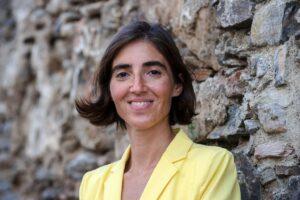 With the help of satellite data, we can communicate, navigate from A to B or gain important insights into climate change. We owe numerous innovations and future technologies to space research. In short: without space, our modern life would look very different!
The talk will highlight how important space is for sustainable life on Earth and on the challenges that space must face in order to become more sustainable.
Chiara Manfletti holds a degree in aeronautical engineering from Imperial College London, a masters degree in space studies from the International Space University in Strasbourg and a PhD from RWTH Aachen. She worked for the German Aerospace Center, DLR, as a research engineer in the field of liquid rocket propulsion and later joined the European Space Agency in 2016, where she was Head of Policy and Programmes Coordination at ESA. In March 2019 she was nominated the first President of the then just founded Portuguese national space agency, Portugal Space. Today she is Professor of Space Mobility and Propulsion at the Technical University of Munich in Germany and CEO of Neuraspace.
With the help of satellite data, we can communicate, navigate from A to B or gain important insights into climate change. We owe numerous innovations and future technologies to space research. In short: without space, our modern life would look very different!
The talk will highlight how important space is for sustainable life on Earth and on the challenges that space must face in order to become more sustainable.
Chiara Manfletti holds a degree in aeronautical engineering from Imperial College London, a masters degree in space studies from the International Space University in Strasbourg and a PhD from RWTH Aachen. She worked for the German Aerospace Center, DLR, as a research engineer in the field of liquid rocket propulsion and later joined the European Space Agency in 2016, where she was Head of Policy and Programmes Coordination at ESA. In March 2019 she was nominated the first President of the then just founded Portuguese national space agency, Portugal Space. Today she is Professor of Space Mobility and Propulsion at the Technical University of Munich in Germany and CEO of Neuraspace.
Lecture Recording
 Shared Session with Hochschule München University of Applied Sciences
Shared Session with Hochschule München University of Applied Sciences
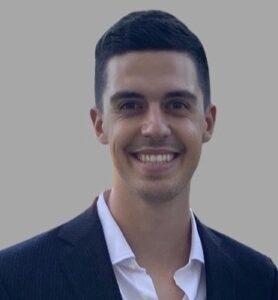
AI-enabled technologies have huge potential to enable climate action, from digital twins that model the Earth to algorithms that help us run the future of energy systems and transportation networks. But AI systems, especially the rise of deep learning and large language models, also raise sustainability concerns linked to the natural resources they consume such as electricity and water, and the carbon emissions they produce. All of this begs the question: can AI help save the planet?
Johannes Leon Kirnberger is a policy advisor for AI and sustainability at the AI Unit of the OECD Division of Science, Technology and Innovation (STI). He previously led the program on climate action and biodiversity preservation at the Global Partnership on AI (GPAI) and the International Centre of Expertise in Montreal on AI (CEIMIA). Johannes is a member of the UNEP Expert Group on Digital Tech for Circular Economy, advises the Intergovernmental Panel on Climate Change (IPCC) on the green and digital “twin transition” and serves as guest lecturer at the Technical University of Munich (TUM) on climate change and AI policy. He holds a Bachelor of Science in Management from ESCP Business School, a Master of International Public Management from Sciences Po, and a Master in International Affairs, Energy and Environment from Columbia University.
Lecture Recording
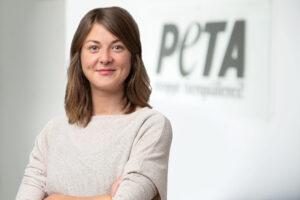
A hidden reality to us, a daily torture to them: industrial animal agriculture. Out of sight, out of mind trillions of farmed animals suffer around the globe hidden away in stalls, cages or laboratories – for our food. Animal agriculture is one of the leading causes of climate change and the loss of biodiversity. Maybe more so, it’s a real threat to our health as well as to the societal and natural order. With simply granting all animals basic rights, we can establish a harmonious agricultural system worldwide and unfold a just and sustainable future – for all. Want to find out what you can do?
After several years of experience in campaigning for animal rights in Germany and China, Julia Weibel dedicated herself to sustainable development cooperation and sustainable agriculture. As a campaigner for animals in agriculture, she supports PETA Germany in exposing animal suffering and establishing new ways for animal-free and sustainable agriculture in Germany.
Lecture Recording
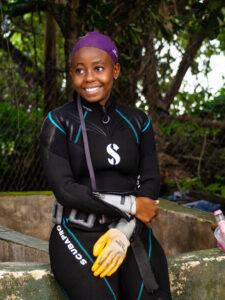
What if reefs could speak? What would they say? Who are their friends? The fish, sea turtles, dolphins? And are we humans part of their circle? Or do they secretly blame us for the pollution, warming waters, and relentless noise that push them to the brink? In this talk, the reef becomes a spokesperson for other marine ecosystems and animals in Kenya. Through its eyes, we’ll discover the hidden beauty, loss, and resilience of the delicate web of life beneath the waves — a world we often overlook. But the reef is tired. This is not just a call for conservation; it’s a plea to truly listen. The reef and its ocean neighbors know what they need to survive. All we need to do is pay attention.
About Cindy Saru Chorongo: I am a Marine Scientist honored with a Marine Conservationist Award for my dedication to the field. I hold a BSc in Marine Resource Management and am currently pursuing an MSc in Sustainable Resource Management at the Technical University of Munich. As Vice Chairlady and founding member of Shimoni SeaTurtle Watch, I lead efforts to protect sea turtles in Kenya’s Wasini Channel. Beyond turtles, I specialize in restoring coral, mangrove, seagrass, and seaweed ecosystems in the Western Indian Ocean. I’m deeply committed to community engagement, coordinating environmental education programs to raise awareness. With expertise in creating accessible, visually compelling content using tools like CANVA and social media, I make complex marine issues understandable for diverse audiences, including children. As an advanced certified Coral Restoration Diver with 400+ documented dives, I am experienced in both land and underwater restoration projects. Gaining local and international recognition, with features in media outlets such as Radio Rahma, ORAIMO, Voice of America, and BBC. Driven by a passion for healthier oceans, I continue to push for change and sustainability in marine conservation.
Lecture Recording
 Shared Session with Protect the Planet
Shared Session with Protect the Planet
Münchner Zukunftssalon (Goethestraße 28, 80336 München)
sowie Zoom-Online und LIVE auf Youtube
Zur Anmeldung: Hier anmelden

„Neue Erdgasbohrung in Bayern geplant“ – und der bayerische Wirtschaftsminister Hubert Aiwanger (Freie Wähler) hat das sogar genehmigt: Der kanadisch-deutsche Investor Genexco Gas will in der Nähe des Ammersees nach Erdgas bohren. Die erste Probebohrung ist in der Gemeinde Reichling (Landsberg) für Beginn 2025 angesetzt, im Visier ist die gesamte Region zwischen Lech und Ammersee. Und das trotz Energiewende und Klimakrise!
Saskia Reinbeck, Energie-Expertin von Greenpeace Bayern, hat die zivilgesellschaftlichen Proteste gegen die Gasbohrung von Anfang an begleitet. Am Dienstag, 10.12.2024, wird sie einen Überblick über die Lage vor Ort und die nächsten Schritte geben. Wichtige Fragen stehen dabei auf der Agenda: Warum wäre die Gasbohrung so fatal? Brauchen wir das Gas nicht für die Unabhängigkeit von Russland? Warum werden Bayern und die lokale Bevölkerung von dem Projekt nicht profitieren – und welche Rolle spielt die bayerische Landespolitik?
Am wichtigsten natürlich: Lässt sich die Gasbohrung noch aufhalten, und wenn ja: wie?
Diese und weitere Fragen wollen wir an diesem Abend gemeinsam diskutieren.
Melden Sie sich jetzt an!
Lecture Recording
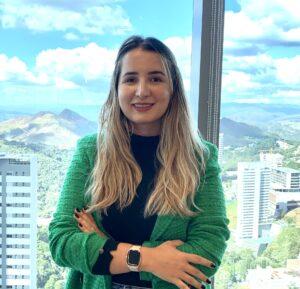
The lecture is going to focus on mining waste, specifically tailings, including their definition, generation, properties, and management challenges. It will introduce the circular economy concept in tailings management, discussing legislation, recycling, and case studies of successful initiatives. The session will emphasize the importance of reusing materials to reduce environmental impacts and outlines future steps for integrating circular practices in mining, highlighting academia’s role in fostering innovation and research for sustainable mining practices.
Laís Resende is a Principal Engineer at Vale, specializing in the development of sustainable business solutions and products derived from mining waste. Since 2015, she has led multiple initiatives, which allowed Vale reusing around 2,1 million tons of tailings so far. Her significant achievements include establishing the Vale ore-sand business; planning, launching and operating the first industrial tailings brick factory; developing sustainable high-purity quartz, proppant and countryside pavement from tailings; building the first experimental road made from tailings; helping the creation of 2 Vale Circular Economy Startups. Laís holds a degree in Mining Engineering and a master’s degree in Mining, Material, and Metallurgical Engineering from the Federal University of Minas Gerais (UFMG). Additionally, she completed a specialization in green transition at Cambridge University. Last year, Amira recognized her as one of the top innovators in the mining industry. She also is inventor of 2 patents. For Laís, the circular economy is not just a sustainable business strategy; it is a pathway to a better future and the ongoing viability of mining.
Lecture Recording
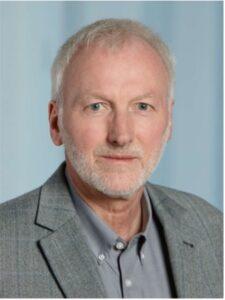
Projections show that the world population will grow to more than 9 billion people by 2050. Goals 2 and 3 of the United Nations Sustainable Development Goals embrace the provision of sufficient and nutritious food for the growing population to promote human health and wellbeing. Major crops such as cassava, maize, potato, rice, and wheat are rich in starch and together they provide more than 60% of the carbohydrate calories consumed worldwide, but they have a poor micronutrient content. People for whom these crops are the primary staple food receive enough calories, but they are often malnourished because these staple foods do not contain enough of the necessary vitamins and minerals such as iron for a healthy diet. To date, 1.6 billion people worldwide suffer reduced productive capacity due to iron-deficiency anemia. Achieving higher micronutrient content for health and nutrition is often not possible with available breeding germplasm, especially in rice. We are employing genetic engineering and genome editing strategies to increase the iron and vitamin content of polished rice grains for improving human health. For example, we increased iron and zinc in rice grains to dietary relevant levels, and combined iron and zinc with essential vitamins. Multi-year field trials and feeding experiments with these biofortified rice lines demonstrate that the micronutrient traits are stable and bioavailable.
Wilhelm Gruissem was Professor at the University of California at Berkeley, USA, from 1983-2000 and Director of a collaborative research program with Novartis from 1998-2000. In 2000 he became professor at ETH Zurich, where he built the Functional Genomics Center Zurich that he led as Director from 2001 to 2017. In 2008 he founded the company Nebion. From 2006 to 2010 he was President of the European Plant Science Organization (EPSO) and from 2012-2015 President of the Global Plant Council. In 2018, he became a Distinguished Chair Professor and Yushan Fellow at National Chung Hsing University in Taiwan. In addition to his long-term research on plant systems biology, he directs a biotechnology program on trait improvement in cassava and rice.
Honors & Awards
- Fellow, American Association for the Advancement of Sciences
- Chancellor’s Professorship, University of California at Berkeley
- Anniversary Prize of the Eiselen Foundation Ulm, Germany
- Fellow and Corresponding Member, American Society of Plant Biologists
- Storer Lecture, University of California, Davis
- Skidmore College Distinguished Visiting Scientist
- Shang Fa Yang Award, Academia Sinica Taiwan
- David W. Beach Memorial Award, Purdue University
- Highly cited researcher, Thomson Reuters, 2015, 2016
- Yushan Scholar, Ministry of Education, National Chung Hsing University (since 2018)
- Hsien-Wen Li Lecture, Academia Sinica, Taiwan
- Listed among the top 2% scientists in the world for lifetime achievements
Lecture Recording
 Shared Session with Protect the Planet
Shared Session with Protect the Planet
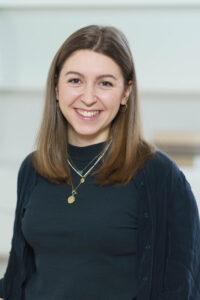
In this lecture, Johanna Frühwald will explore the critical intersection of finance, fossil fuels, and climate action by giving insights into the work of the German environmental and human rights NGO, Urgewald. Founded in 1992, Urgewald has become a global leader in tracking the financial flows that support destructive industries and advocating for transformative change. The presentation will spotlight Urgewald’s pioneering data-driven campaigns, including the development of the Global Coal Exit List (GCEL) and Global Oil & Gas Exit List (GOGEL)—the most comprehensive publicly accessible databases on the fossil fuel industry. These tools are used by hundreds of financial institutions to shape investment decisions and policies. Moreover, insights from a current campaign in collaboration with the Filipino organization Center for Energy, Ecology, and Development (CEED), targeting the massive expansion of gas infrastructure in the Philippines and Southeast Asia, will be shared.
Before joining the team at Urgewald, Johanna was actively involved with Fridays for Future Austria for several years, bringing valuable experience in campaigning. She completed her Master’s degree in Socio-Ecological Economics at the University of Economics and Business in Vienna and has previously worked with the Italian NGO ReCommon as well as the KONTEXT Institute for Climate Issues in Vienna.
Lecture Recording
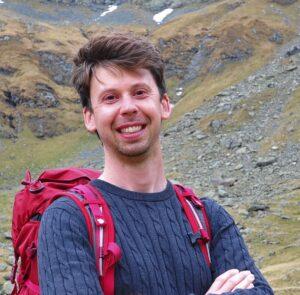
The talk will cover the following topics:
- Introduction to deep-sea biology (oceanography, ecology, biodiversity);
- What are ocean minerals? (types, history/summary of scientific knowledge about them);
- Human interest in ocean minerals (history of interest, proposed applications, methods of extraction, management of resources);
- Potential environmental and social impacts of ocean mineral extraction;
- Do we need deep-sea minerals? (mineral supply and demand and the development of technology);
- A way forward (drafting of regulations and reaching consensus).
Dr. Oliver Ashford is a marine biologist, explorer and intelligence analyst working at the science to policy interface. He is committed to the description, understanding and sustainable management of marine biodiversity. His research covers topics including deep-sea ecology and taxonomy, understanding of human impacts on marine environments, use of remote sensing methods to combat Illegal, Unreported and Unregulated (IUU) fishing, ocean climate solutions, and the relationship between ocean health and human health. Currently based at World Resources Institute, he works closely with governments, IGOs, NGOs and industry to advise on the protection and sustainable use of marine environments.
Oliver holds a PhD in Deep-Sea Ecology from the University of Oxford, an MSc in Taxonomy and Biodiversity from Imperial College London, and a BA in Natural Sciences from the University of Cambridge. He undertook postdoctoral studies at Scripps Institution of Oceanography, San Diego, has authored over 25 scientific publications, and has presented his work in Europe, North America, Central America and Africa.
Oliver currently lives in the UK with his wife, young son and two cats. In his spare time he enjoys surfing, sailing, fencing and playing violin and guitar.
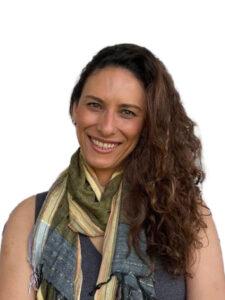
During this short talk we will take a dive into the wildlife trafficking world. What is wildlife trafficking? Why does it happen? What are the drivers? Why does it matter and what are the impacts and facets of wildlife trafficking? And finally how each person can contribute to end this horrendous practice.
Originally a kid passionate about animals and nature, Juliana earned a BSc in Biological Sciences, followed by a MSc and a PhD in Genetics, all from the University of Sao Paulo, Brazil. During her academic career she got interested in issues pertaining wildlife trafficking and did her PhD in collaboration with the US FWS National Forensics Laboratory, interested in origin assignment of birds seized from the illegal trade. During this process, she was nominated TED Fellow/Senior Fellow 2009-2012 and later Nat Geo Emerging Explorer in 2014. She was awarded the Courage Prize for Women in Science and Exploration by Wings WorldQuest in 2016 and received the Partnerships for Conservation award by Interpol’s Wildlife Crime Work Group in 2023. Currently, she is the Executive Director of the Freeland branch for South America and part of the Steering Committee of the Global Initiative to End Wildlife Crime.
SUMMER SEMESTER 24
 Shared Session with Hochschule München University of Applied Sciences
Shared Session with Hochschule München University of Applied Sciences
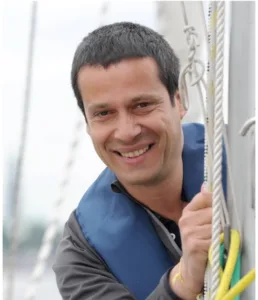
Did you know that everyone has a strong impact on “Life below water” and our marine ecosystems, even though we here in Bavaria live so far away from the ocean? Do you want to learn how and why we need to act now for our oceans and marine life? Then join this lecture by Frank Schweikert, Founder and Director of the German Ocean Foundation. He will explain how the daily work of the institutions he is involved in contribute to a meaningful status improvement of the world’s largest ecosystem – the ocean. Although we humans depend on a healthy ocean to survive on planet Earth and the ocean is connected to all our rivers, we nearly know nothing about it. So, let’s dive into this amazing and still unknown ecosystem, allow ourselves to be inspired to change how we think, act, and feel about the ocean, and learn how we, even as students, can sustainably impact the future of “Life below water”.
Frank Schweikert is the founder and director of the German Ocean Foundation, President of the German Marine Litter Association, and Vice President of the German Society for Marine Research. He is the founder of Hamburg Climate Week (since 2009) and an associated member of the German branch CLUB OF ROME and ALDEBARAN Marine Research and Broadcast. He was a member of the European Union Assembly Mission Board “Climate Change Adaptation, including Societal Transformation” (2019-2022) and an honorary member of the Rotary Club Passport ECO Planet. He studied Biology with a diploma at the Universities of Stuttgart and Munich.
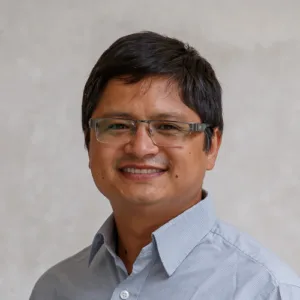
Countries are not on track to meet the 2030 Agenda for Sustainable Development that comprises 17 Sustainable Development Goals (SDGs) and 169 targets to be achieved by 2030. Although SDGs aim to shift the world onto a sustainable and resilient path, countries are not yet able to make transformative changes for long-term sustainability that require building social prosperity and foundations within planetary boundaries. Failing to achieve SDGs will negatively affect billions of people and worsen environmental conditions and socio-economic problems. Therefore, BeyondSDG aims to understand the necessary conditions for long-term sustainability, including achieving SDGs, based on the following specific objectives:
- identify critical targets for prioritizing SDGs;
- investigate the effects of (under)achieving SDGs on long-term sustainability beyond 2030; and
- identify sustainability targets for the post-2030 development agenda. For this, BeyondSDG applies a threefold scientific approach that combines statistical analysis of empirical and modelled data, qualitative analysis of literature, and knowledge co-creation with stakeholders, including sectoral experts and policymakers, based on systems thinking.
This combination of three approaches is complementary and essential to deal with the complex topic of long-term sustainability.
Prajal Pradhan, an Assistant Professor at the University of Groningen, studied agricultural engineering and environmental management. He has received the ERC Starting Grant 2022. Prajal was a lead author of the IPCC Special Report on Climate Change and Land. He has experience designing relevant research on sustainable development, climate change, and food systems. His current research focuses on understanding the necessary conditions for long-term sustainability, including achieving SDGs, urban transformations, and climate resilience. He is also a Visiting Scientist at the Potsdam Institute for Climate Impact Research in Germany.
Lecture Recording
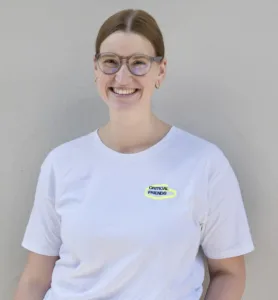
What does it take to use our economy as a lever to shape the sustainable transformation? And why are we still working with paradigms that are outdated? The talk will give an overview of future needs and obstacles on the way. How can we shape our economy to operate within planetary boundaries? And how do we need to shift our way of thinking about things?
Antonia is advocating for a regenerative and just new economic thinking. She is currently studying the M.A. Responsibility in Science, Engineering and Technology at TU Munich, working at the sustainability consultancy Agentur2020. Furthermore, she is a fellow and coach at the think-tank CRITICAL FRIENDS, where they actively want to create a beautiful economy.
Lecture Recording
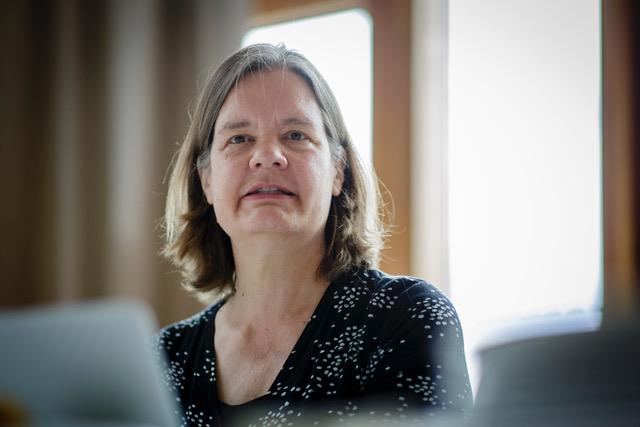
What has been achieved in efforts to address climate change in past Conference of the Parties (COPs) to the United Nations Framework Convention on Climate Change and what can be expected from COP29 in Azerbaijan. Are we making progress? What are the big hurdles that need to be overcome? How might political developments impact on climate change progress? This talk will provide a broad overview of major trends in climate policy.
Prof. Miranda Schreurs (PhD University of Michigan) is Chair of Climate and Environmental Policy at the Bavarian School of Public Policy, Technical University of Munich. She investigates environmental movements, green politics, and climate policy making both comparatively and internationally. She has lived and researched in Europe, the United States and Asia. She also specializes on the politics surrounding the disposal of highly radioactive waste. In 2011, Prof. Schreurs was appointed by Chancellor Angela Merkel as a member of the Ethics Committee for a Secure Energy Supply. In 2016, she was appointed by the German Bundestag as a member of a committee established to bring citizens’ voices and ensure greater transparency in the search for a disposal site for highly radioactive waste. She was a member of the German Council on the Environment (2008-2016) and served both as Vice Chair and Chair of the European Advisory Council on Environment and Sustainable Development. She was a Fulbright Fellow to Japan and Germany and spent three years studying at the John F. Kennedy School of Government at Harvard University. She also worked as a professor of comparative politics at the University of Maryland. From 2007 to 2016 she was Director of the Environmental Policy Research Center and Professor of Comparative Policy at the Free University of Berlin.
Lecture Recording
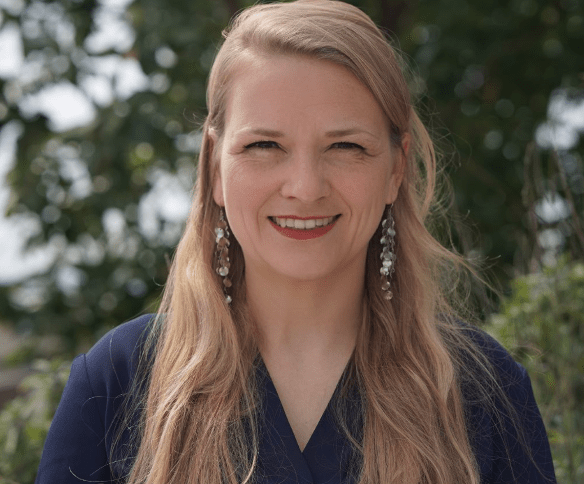
Women worldwide face significantly more barriers to becoming entrepreneurs or employees compared to men. The latest Women, Business, and the Law report offers a comprehensive picture of the obstacles that women face in entering the global workforce and contributing to greater prosperity – for themselves, their families, and their communities. It expands the scope of its analysis, adding two indicators that can be critical in opening up or restricting women’s options: safety from violence and access to childcare services. When those measures are included, women on average enjoy just 64% of the legal protections that men do – far fewer than the previous estimate of 77%.
Women, Business and the Law is a World Bank Group project collecting data on the laws and policy mechanisms that measure the enabling environment for women’s economic opportunity. Women, Business and the Law 2024 introduces a new framework with three pillars – legal frameworks, supportive frameworks, and expert opinions – to measure the differences on access to economic opportunities between men and women in 190 economies. Adopting laws that strengthen women’s rights and opportunities is an essential first step toward inclusive, resilient, stronger societies. Equal treatment of women under the law is associated with more women entering and remaining in the labor force and rising to managerial positions. It generates higher wages for women and facilitates business ownership by women.
The analysis reveals a shocking implementation gap. Although laws on the books imply that women enjoy roughly two-thirds the rights of men, countries on average have established less than 40% of the systems needed for full implementation. For example, 98 economies have enacted legislation mandating equal pay for women for work of equal value. Yet only 35 economies – fewer than one out of every five – have adopted pay-transparency measures or enforcement mechanisms to address the pay gap. Even in high-income countries with high scores for treating women equally under the law, the implementation of these laws is lacking.
Daniela Behr is an Economist at the Women, Business and the Law project at the World Bank. She currently leads the team’s research efforts on women’s legal capacity regarding property rights, financial inclusion, and entrepreneurship. Daniela has worked in various capacities at the World Bank Group since 2018 co-leading a research project on affordable housing, conducting impact assessments of IFC’s investments in financial institutions, and working on indicator development related to agribusiness regulations. Prior to joining the World Bank Group, Daniela was a research fellow at University of Konstanz and George Washington University and a human rights and gender specialist with the German Development Cooperation (GIZ) in Dar es Salaam, Tanzania. Daniela studied in Konstanz, Madrid, and Toronto and holds a PhD in political economy from the University of Konstanz.
Lecture Recording
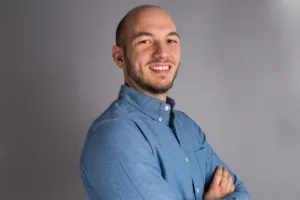
A healthy ocean is essential to global well-being, biodiversity, and includes critical ecosystems underpinning all life on earth. Despite its values, the ocean is under immense pressure from human activities, threatening its ability to support human well-being, with disproportionate impacts on vulnerable communities. The majority of these pressures come from economic activities related to the ocean (“ocean economy”) such as fishing, aquaculture, coastal development, and shipping. Globally the ocean economy is worth over $4t AUD/yr and is expanding at twice the rate of the mainstream economy. At the same time, the gap in funding to protect and manage ocean health is at least $266b AUD/year and growing rapidly. Not only does this put the future of the ocean at risk, it also risks the entire global economy: over two-thirds of all publicly listed companies are at risk due to ocean decline.
Investing a sustainable ocean economy (SOE) however can reduce economic losses by $8t AUD by 2037, yield six times more food and create 12 million new jobs by 2030. In a SOE, ocean health and ocean wealth are held in balance, and sufficient and durable finance for the management of ocean health is provided from the SOE. Despite clear evidence that achieving SOE will be better economically, ecologically and socially, market barriers hinder the transition. Key market barriers include inadequate policies, funding, capacities, and pipelines of investable SOE deals.
This talk will dive into the global efforts to align capital flows with SDG 14.
Dr. Dennis Fritsch is focusing on ocean finance and the blue economy at Minderoo Foundation. Previously, he led the United Nations’ Sustainable Blue Economy Finance Initiative, bringing together banks, insurers, and investors to align their activities with a sustainable ocean economy and SDG 14 – Life Below Water. Before, he established the research department at Responsible Investor, focusing on investor perspectives on Blue Economy and biodiversity. He further supported the European Commission’s BlueInvest Fund and BLUE Marine Foundation, alongside being selected as a Protect.Blue Wavemaker 2023 and for the pool of experts to contribute to the UN’s 3rd World Ocean Assessment (WOA III).
Lecture Recording
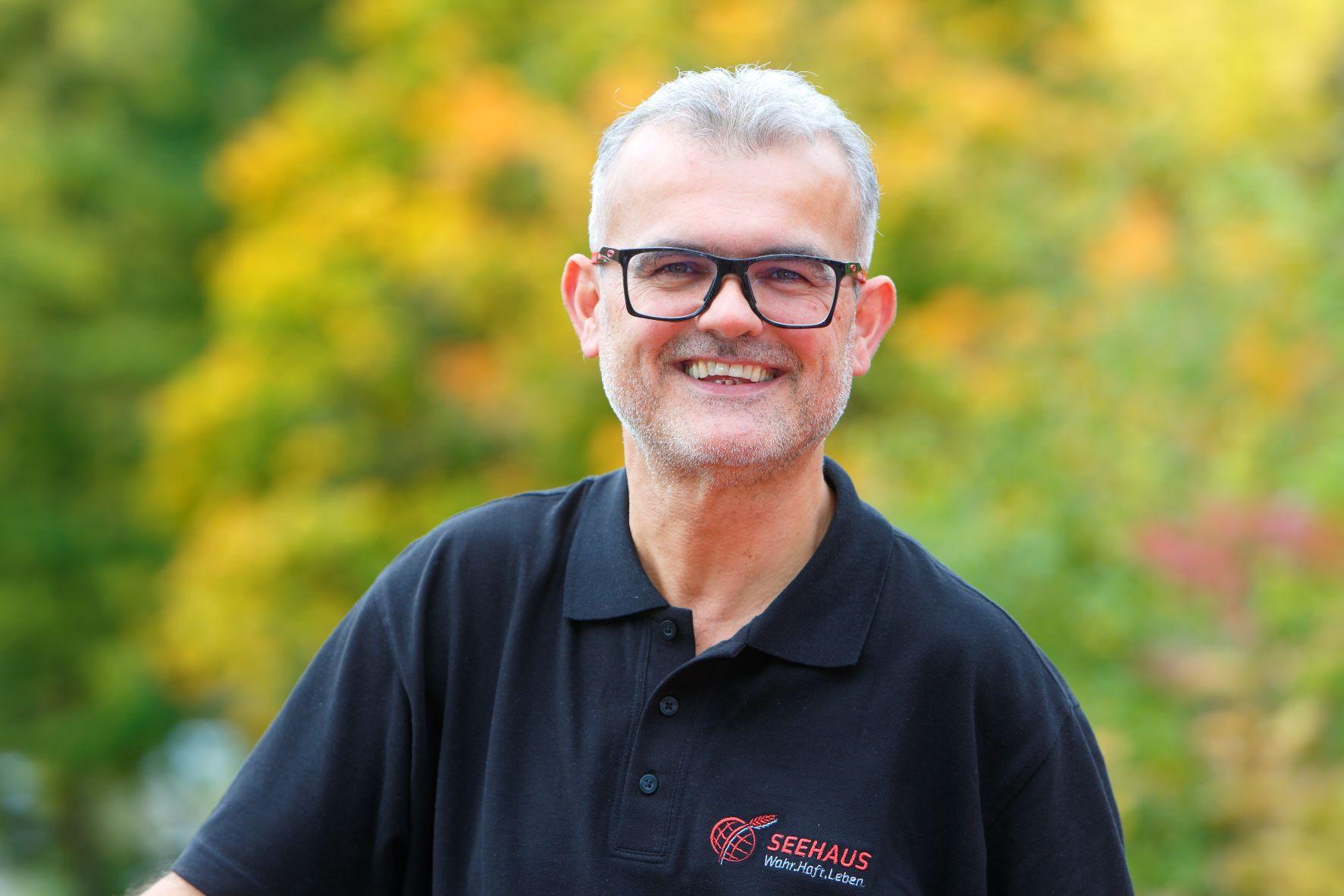
SDG 16: Promote peaceful and inclusive societies for sustainable development, provide access to justice for all and build effective, accountable and inclusive institutions at all levels.
What does this mean when we talk about crimes, their victims, the perpetrators and incarceration? What about our “habits and traditions” of “punishing the offender” by taking the conflict away from the victim – and partly from “society” – by simply sending people behind the bars of prison? What can we do to restore justice? And what about sustainability, when up to 70% of prisoners relapse into crime within the first five years of their release? What do we do with national conflicts and their consequences that are often and quickly referred to as “peace”, as in Colombia?
Let’s explore together the concepts of:
- Restorative Justice as a new paradigm for the old problem of “stolen conflict”,
- the challenges of “peace building” and the gap between personal trauma counseling and public restoration,
- the role of NGOs in failing states and challenged societies as actors for peace, freedom and sustainability, and
- the opportunities for students to design, create and produce opportunities for change in an “en detail” example:
- Rethinking ‘Prison and Corrections’: a new generation of greener, more inclusive and sustainable prisons.
Ulrich Weinhold is a development expert with three decades of professional experience. After studying law in Germany and the USA, he worked as a lawyer at the renowned Bavarian law firm Rödl & Partner. After his appointment in international development work, he worked in development projects in the post-war area of Eastern Congo in the reconstruction of a hospital and in the “Golden Triangle” between Northern Laos, China, and Myanmar in the fight against drug cultivation and trafficking with high-quality silk projects for the tribal community in the mountains. After disaster management in the Asian region following the 2004 tsunami, he took over the management of a Christian organization for relief and development work funded by the “BMZ”, which works in more than 80 countries with around 260 employees, often in “failed states” and in civil war or post-war situations. With his experience in Colombian post-crisis management, he was invited to work at Seehaus e.V., a free-form prison, as a restorative justice agent with a special focus on victims’ rights. He is a certified mediator in criminal matters. In addition, he is an in-house lawyer there and maintains his own law firm for international contracts, supply chains, and organizational development.
Recommending lifelong learning himself, he holds master’s degrees from the Catholic University of Freiburg in organizational management and the Bonn HBRS University with a thesis on sustainability measures in supply chains at the Schwarz Group (LIDL, Kaufland, PreZero). He teaches youth law in various institutions and is often invited to speak about justice, healing, and responsibility.
Lecture Recording
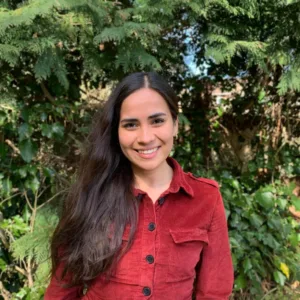
Lecture Recording
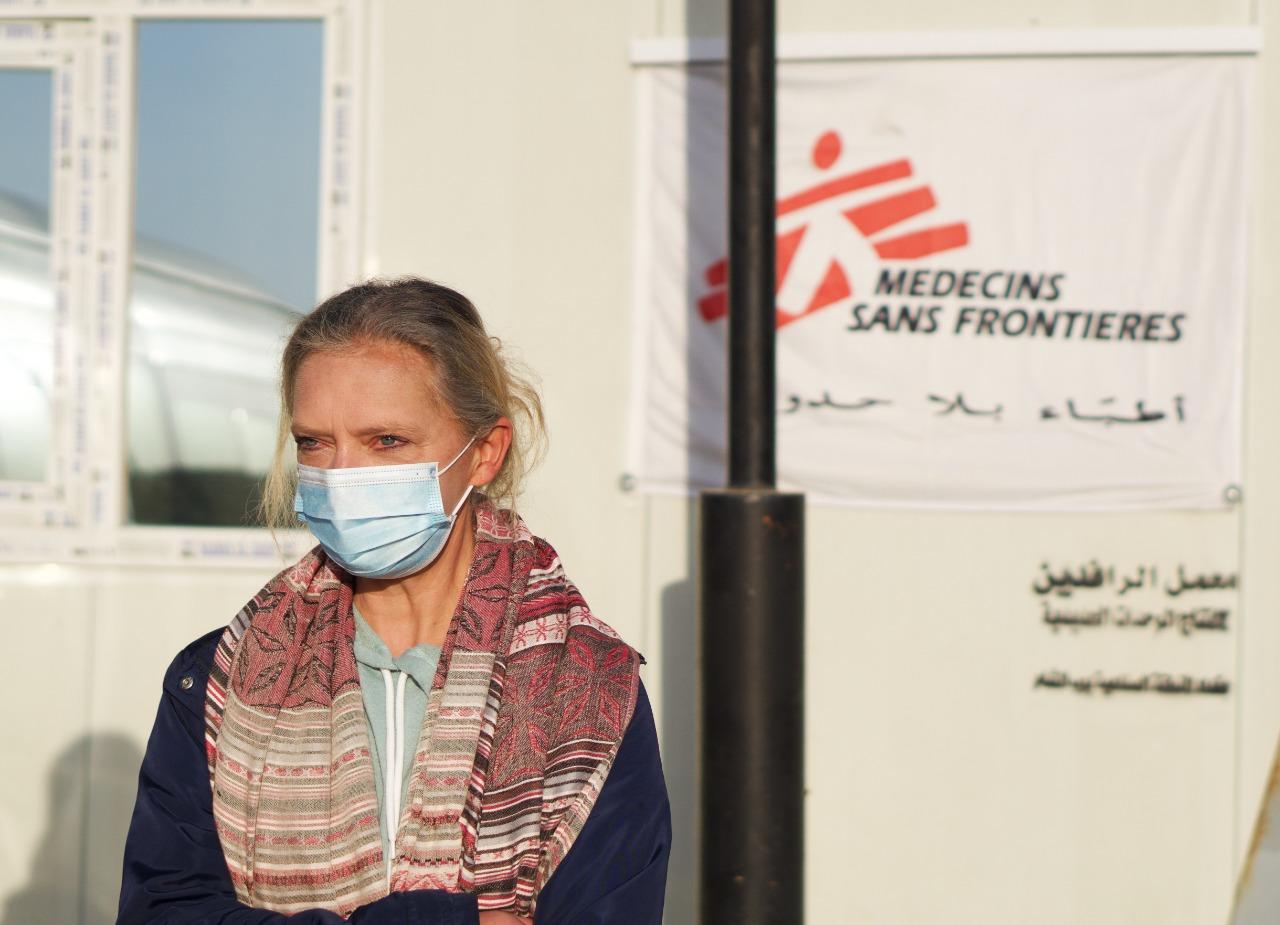
Countless individuals globally endure ongoing conflict and preventable illnesses, particularly impacting the most vulnerable, such as infants and children. Médecins Sans Frontières (MSF) medicals undertake courageous missions in these regions, striving to save lives and improve healthcare conditions. One of these doctors is Monika Ried. In the lecture, she’ll talk about her experiences in Yemen, Iraq, and Nigeria, where she and her colleagues helped people hurt by war, provided care for Yazidi refugees who suffered under genocide, and fought against diseases like Diphtheria. Let’s hear about how she and the team from MSF are helping in places without stable government, supporting their colleagues in tough situations, saving patients, and trying to find ways to stop poverty and unfairness.
Monika Ried is a medical doctor, who specialized in internal medicine and intensive care. Currently, she’s working in München Bogenhausen in an interdisciplinary Intensive care unit. Within her engagement in “Médecins Sans Frontières (MSF)” [engl. “doctors without borders”, dt. “Ärzte ohne Grenzen”], she was sent 9 months to Yemen in 2018 for her first mission. There, Monika Ried worked in the emergency room, where she nurtured war-wounded people and cared for babies and children with severe malnutrition or almost forgotten infectious diseases like tetanus or diphtheria. In 2020/21 Monika Ried was sent to north Iraq to support a hospital, especially for the Yazidi refugees who underwent genocide by the IS. Last year she went to Nigeria on an emergency mission as a medical team leader.
Lecture Recording
WINTER SEMESTER 23/24
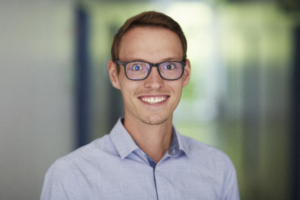
- Bidirectional charging in general and its role as an enabler for e-mobility in the energy system
- Use cases and the assessment of profitability and CO2 emissions of smart and bidirectional charging from a user perspective
- Challenges and opportunities of the technology in urban region.
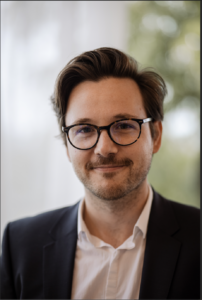 The presentation investigates the crucial part that mobility hubs might play in transforming urban transportation. In order to improve connection, lessen congestion, and accelerate the development of smarter, greener cities, we explore the integration of diverse transport modes, with a special emphasis on micromobility. Join us on a journey into the transformative potential of mobility hubs and their vital role in the urban mobility landscape.
Jonathan Gerz is a researcher with primary focus centers on the seamless integration of mobility and energy technologies to enhance urban connectivity, all while minimizing environmental impact. Possessing a background in engineering, his ultimate goal is to harness engineering principles to create more efficient and sustainable urban systems, thereby improving the quality of life in cities worldwide.
The presentation investigates the crucial part that mobility hubs might play in transforming urban transportation. In order to improve connection, lessen congestion, and accelerate the development of smarter, greener cities, we explore the integration of diverse transport modes, with a special emphasis on micromobility. Join us on a journey into the transformative potential of mobility hubs and their vital role in the urban mobility landscape.
Jonathan Gerz is a researcher with primary focus centers on the seamless integration of mobility and energy technologies to enhance urban connectivity, all while minimizing environmental impact. Possessing a background in engineering, his ultimate goal is to harness engineering principles to create more efficient and sustainable urban systems, thereby improving the quality of life in cities worldwide.
Lecture Recording
Prof. Dr. Harald Lesch ist Professor für theoretische Astrophysik an der Ludwig-Maximilians-Universität München und einer der bekanntesten Naturwissenschaftler Deutschlands. Er vermittelt seit vielen Jahren der breiten Öffentlichkeit spannendes naturwissenschaftliches Wissen. Er hat zahlreiche Bücher veröffentlicht, in denen er sich neben vielen weiteren Themen intensiv mit unserer Welt von morgen auseinandersetzt. Im ZDF moderiert er unter anderem die beliebte Sendung „Leschs Kosmos“.
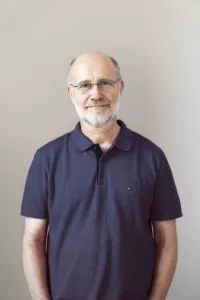
Prof. Dr. Christian Holler ist Professor für Ingenieurmathematik an der Fakultät für angewandte Naturwissenschaften und Mechatronik, Hochschule München. Zuvor hat er in experimenteller Astrophysik an der Universität Cambridge promoviert und später zu diesen Themen in Oxford geforscht. Seit einigen Jahren beschäftigt er sich intensiv mit erneuerbaren Energien und der öffentlichen Diskussion darüber. Seit 2021 ist er zudem Innovationsprofessor für Lehre, um den interdisziplinären Schwerpunkt Nachhaltigkeit weiter auszubauen und neue Lehrangebote zu schaffen.
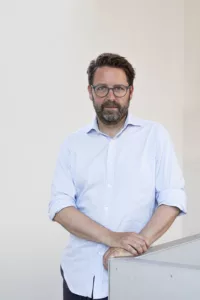
Lecture Recording
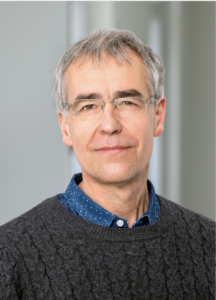
Cities are social, cultural, and economic hubs of humankind. In the 21st century, the proportion of humans living in urban areas is expected to surpass 70 % globally. At the same time, urban areas contribute to global warming with 80 % of all carbon dioxide emissions, they cause the overuse and degradation of natural resources and environmental quality in urban areas can be low. Urban nature is increasingly seen as a solution to these problems. Can it really deliver and how should urban areas be transformed into green cities of the future to become healthy places for people and the planet?
The talk will give insights into recent research of the Centre for Urban Nature and Climate Adaptation at TUM, our Urban Forest Research Group, and the newly established Research Training Group “Urban Green Infrastructure – Training Next Generation Professionals for Integrated Urban Planning Research” to address these questions.
Prof. Dr. Stephan Pauleit is a professor of Strategic Landscape Planning and Management at TUM. Urban ecology, the planning and governance of green infrastructure and nature-based solutions, adaptation strategies to climate change in the urban environment, urban forestry, and trees are his main areas of research.
At present, he is the director of the “Centre for Urban Ecology and Climate Adaptation” at the Technical University of Munich. The Centre has given new insights into integrated strategies for climate change mitigation and adaptation.
Lecture Recording
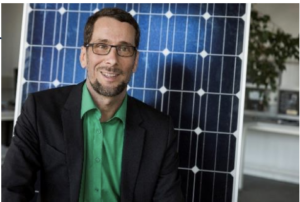
Die Klimakrise ist die größte Bedrohung für unsere Welt, wie wir sie kennen. Wollen wir die Lebensgrund- lagen unserer Kinder bewahren, brauchen wir schon in einer halben Generation eine Energieversorgung ausschließlich auf Basis erneuerbarer Energien. Die Wissenschaft und die Industrie haben für uns die Lösungen entwickelt. Handeln müssen wir alle gemeinsam.
Und wollen wir das Pariser Klimaschutzabkommen mit dem maximal +1,5oC-Ziel noch einhal- ten und die schlimmsten Folgen der Klimakatstrophe vermeiden, brauchen wir in Deutsch- land bereits im Jahr 2035 eine klimaneutrale Energieversorgung. Reicht dazu die Energie von Sonne und Wind aus? Sind Elektroautos wirklich umweltfreundlich? Was bringt das Wärmeplanungs- und das Gebäude-Energie-Gesetz? Und die viel gepriesenen Wärme- pumpen? Ist Wasserstoff wirklich der Heilsbringer – wie politisch behauptet? Was können wir selber tun, unsere Lebensgewohnheiten – nicht nur bei der Energienutzung – zu ändern, auch wenn es nicht leichtfällt? Das sind die Eingangsfragen.
Deutschland versagt beim Klimaschutz: Die Energiekrise hat zu keinen nennenswerten Minderungen der Kohlendioxidemissionen geführt. Sind schon die gesetzlichen Treibhausgas-Reduktionsziele der Bundesregierung deutlich zu matt, so werden sie ja auch Jahr für Jahr nicht erreicht – dabei hält die Bundesregierung ihre eigenen Gesetze nicht ein! Auf FDP-Druck hat das Bundeskabinett mit einem „Klimagesetz für Klima- verschmutzer“ (Quaschning) das Aufweichen des Klimaschutz-Gesetz beschlossen – welches aufgrund des seinerzeitigen „Klimaschutz-Urteils“ des Bundesverfassungsgerichts, April 2021, gerade erst verschärft werden musste. Weil der Bundesverkehrsminister im Verkehrssektor nicht wirk- lich Treibhausgase reduzieren will, sollen nun andere Sektoren zusätzlich sparen. Nur wird auch dieser Plan nicht funktionieren, weil künftig alle Sektoren ihre Ziele reißen werden.
Der Anteil erneuerbarer Energien am deutschen Bruttostromverbrauch hat im Jahresdurchschnitt 2022 zwar erfreulicherweise über 46 Prozent erreicht, vier Prozentpunkte mehr als 2021. Was einerseits an günstigem Wetter für Photovoltaik- und Windkraftanlagen lag. Andererseits wurde im Schatten der Energie- krise – insbesondere im Sektor privater Haushalte – durchaus weniger Strom verbraucht. Für einen wirk- samen Klimaschutz muss ein Anteil von 100 % regenerative Energien aber bereits 2035, jedenfalls deutlich (!) vor 2040 angestrebt werden. Dazu muss das Ausbautempo erneuerbarer Energien sowohl bei Strom als auch bei Wärme allerdings erheblich gesteigert werden. Das Einhalten des Pariser Klimaschutzabkommens ist mit dem bislang immer noch niedrigen Zubau nicht möglich.
Wie der Einstieg in den Ausstieg aus der Klimakatastrophe dennoch gelingen kann, warum wir dafür eine echte Energierevolution brauchen – und zwar JETZT! – und welche globalen und hiesigen Folgen beim Scheitern drohen, das erläutert einer der weltweit führenden Experten für Regenerative Energien.
Und da wird es wohl viel nachzufragen geben…
Prof. Dr. Ing. habil. Volker Quaschning seit 2004 im Fachbereich Regenerative Energiesysteme der Hochschule für Technik und Wirtschaft (HTW), Berlin, und dessen Sprecher; Studium E-Technik am KIT Karlsruhe, Promotion und Habilitation an der TU Berlin; danach Projektleiter beim Deutschen Zentrum für Luft- und Raum- fahrt; Initiator der Bewegung „Scientists For Future“ (S4F).
Lecture Recording
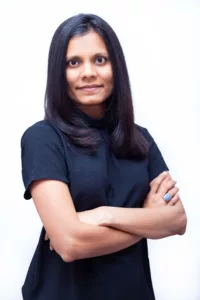
Sand is the unsung hero of our cities. It is used in myriad ways not only to create composite materials such as concrete and glass but also behind the scenes in many industrial processes. However, the scale and pace of extraction is far beyond what can be produced responsibly and is leaving behind massive social-ecological impacts in many parts of the world. What compounds the problem is that sand and gravel are non-renewable resources in human timescales and not every kind of sand is suitable for use in the current industrial system. Join us to explore how we can build our cities and provide for development needs in a sustainable or even regenerative manner.
Kiran Pereira is a PhD Researcher at the Stockholm Resilience Centre, Stockholm University. Her research focuses on risks and opportunities of sand for global sustainability. She is the author of the book Sand Stories: Surprising Truths about the Global Sand Crisis and the Quest for Sustainable Solutions and the Founder of SandStories.org. Her work has previously been featured in the award-winning documentary Sand Wars and media such as The Economist, BBC Radio5, Al Jazeera, Financial Times, ZDF Magazin Royale, CNBC digital among others.
Lecture Recording
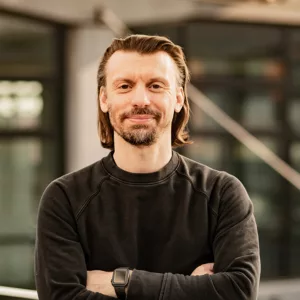
The awareness for new work approaches in organizations has also an impact on our educational institutions and their spatial structures. To foster agile, interdisciplinary, and problem-seeking skills among future professionals, there is a need for spaces that are open and adaptable, yet convey the identity and values of the institution and environment. These spaces empower students to explore and engage; they support them in applying knowledge collaboratively and creating responsible solutions. The physical space becomes a guide and motivator, a medium for innovation. With the technological advancements for hybrid realities, for prototyping and testing, we may have now the chance, to turn visions on the future of work from the 1960s into reality. And shape our urban futures.
Christos Chantzaras is architect and researcher. He has been working at the interface of organizational development, innovation processes, and physical spaces for over 15 years. After international projects in Europe and Asia, he is researching and teaching at the Technical University of Munich since 2017. He investigates future competencies, new methods of innovation management and the requirements for future of work, for future of education and for sustainable urban spaces. Since 2023, he has been member of the “Community of Practice” for Learning Architectures at the Stifterverbandes für die Deutsche Wissenschaft. In parallel, he has installed together with Tobias Förtsch the TUM Venture Lab for the Built Environment, where he acts as managing director to leverage the innovation potential residing in the research and studies of architecture and civil engineering.
Lecture Recording
Some slides have been replaced by a black screen for copyright reasons
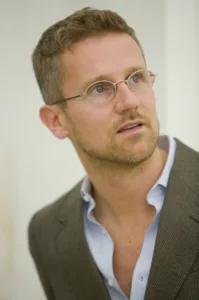
The way we live, work, and play is very different today than it was just a few decades ago, thanks in large part to a network of connectivity that now encompasses most people on the planet. In a similar way, today we are at the beginning of a new technological revolution: the Internet is entering the physical space – the traditional domain of architecture and design – becoming an “Internet of Things” or IoT. As such, it is opening the door to a variety of applications that – in a similar way to what happened with the first wave of the Internet – can encompass many domains: from production to citizen participation, from energy to mobility to public hygiene, all of which requiring new insights due to the changes brought forth by the ongoing COVID-19 pandemic. The contribution from Prof. Carlo Ratti will address these issues from a critical point of view through projects by the Senseable City Laboratory, a research initiative at the Massachusetts Institute of Technology, and the design office Carlo Ratti Associati.
An architect and engineer by training, Professor Carlo Ratti teaches at the Massachusetts Institute of Technology (MIT), where he directs the Senseable City Lab, and is a founding partner of the international design and innovation office Carlo Ratti Associati. He graduated from the Politecnico di Torino and the École Nationale des Ponts et Chaussées in Paris, and later earned his MPhil and PhD at the University of Cambridge, UK.
A leading voice in the debate on new technologies’ impact on urban life and design, Carlo has co-authored over 500 publications, including “The City of Tomorrow” (Yale University Press, with Matthew Claudel), and holds several technical patents. His articles and interviews have appeared on international media including The New York Times, The Wall Street Journal, The Washington Post, Financial Times, Scientific American, BBC, Project Syndicate, Corriere della Sera, Il Sole 24 Ore, Domus. His work has been exhibited worldwide at venues such as the Venice Biennale, the Design Museum Barcelona, the Science Museum in London, MAXXI in Rome, and MoMA in New York City.
Carlo has been featured in Esquire Magazine’s ‘Best & Brightest’ list and in Thames & Hudson’s selection of ‘60 innovators’ shaping our creative future. Blueprint Magazine included him as one of the ‘25 People Who Will Change the World of Design’, Forbes listed him as one of the ‘Names You Need To Know’ and Fast Company named him as one of the ’50 Most Influential Designers in America’. He was also featured in Wired Magazine’s ‘Smart List: 50 people who will change the world’. Three of his projects – the Digital Water Pavilion, the Copenhagen Wheel and Scribit – have been included by TIME Magazine in the list of the ‘Best Inventions of the Year’.
Carlo has been a presenter at TED (in 2011 and 2015), program director at the Strelka Institute for Media, Architecture and Design in Moscow, curator of the BMW Guggenheim Pavilion in Berlin, and was named Inaugural Innovator in Residence by the Queensland Government. He was the curator of the Future Food District pavilion for the 2015 World Expo in Milan and chief curator of the “Eyes of the City” section at the 2019 UABB Biennale of Architecture and Urbanism of Shenzhen. He is currently serving as co-chair of the World Economic Forum’s Global Future Council on Cities and Urbanization.
Lecture Recording
Summer semester 23
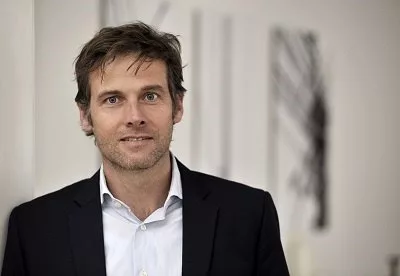 Prof. Dr. Florian Kapmeier is Professor of Strategy at ESB Business School of Reutlingen University, Research Affiliate of the MIT Climate Pathways Project, and Partner of NGO Climate Interactive. He presents En-ROADS with his co-authors at scientific conferences on management and climate change, such as Academy of Management, International Conference of the System Dynamics Society, European Geoscience Union, American Geoscience Union, the UN COPs, and IPCC Germany. He led a project funded by the Ministry of the Environment of Baden-Württemberg to produce all En-ROADS materials in German. Furthermore, Worldwide, Prof Kapmeier is among the top 3 users of the model outside of Climate Interactive and the MIT Sloan Sustainability Initiative.
Prof. Dr. Florian Kapmeier is Professor of Strategy at ESB Business School of Reutlingen University, Research Affiliate of the MIT Climate Pathways Project, and Partner of NGO Climate Interactive. He presents En-ROADS with his co-authors at scientific conferences on management and climate change, such as Academy of Management, International Conference of the System Dynamics Society, European Geoscience Union, American Geoscience Union, the UN COPs, and IPCC Germany. He led a project funded by the Ministry of the Environment of Baden-Württemberg to produce all En-ROADS materials in German. Furthermore, Worldwide, Prof Kapmeier is among the top 3 users of the model outside of Climate Interactive and the MIT Sloan Sustainability Initiative.

Youth participation at international climate negotiations under the United Nations Framework Convention on Climate Change (UNFCCC) has steadily grown. YOUNGO, the official children and youth constituency to the UNFCCC, has done organized efforts to push for more ambitious climate policy since 2009. In this lecture active members of YOUNGO will talk about YOUNGO as a constituency, achievements as well as challenges and how to lobby for change.
1. Ben Santhouse-James : Energy Contact Point at YOUNGO, the UNFCCC Youth Constituency, and works with a broad range of non-profits and youth climate organisations to promote systems thinking and interdisciplinary approaches to solving the climate crisis. He has been involved with YOUNGO for three years, previously serving on the Global Coordination Team and leading the COP27 and COP26 Energy and Sustainable Consumption & Production Global Youth Statements respectively. He holds an MSc in Energy Systems from the University of Oxford, where his research focused on carbon removals, and a BSc in Earth Science (Geophysics) from Imperial College London. In his day job, Ben works as a Sustainability Consultant at McKinsey & Company across sustainable finance, carbon management, and climate tech, and has previous work experience in environmental policy and growth capital investing across energy transition and circular economy assets.
2. Clara Von Glasow: a German law graduate who has been an active member of YOUNGO since 2017. She served as the YOUNGO Global Focal Point in 2018 and since then has joined YOUNGO´s Global Coordination Team. Within YOUNGO she focusses on facilitating processes within the constituency and Capacity-Building for youth participation at UNFCCC conferences. In 2019 she sailed across the Atlantic with a group of youth activists to attend a climate conference in Latin America. Since then she has been organizing participation of Latin American youth at international climate conferences through scholarship programs. (last two sentences can be deleted if necessary)
3. Saher Rashid Baig: Youth advocate for Climate Justice, Human Rights and Child Rights Policy | Current Contact Point of the Cities Working Group and Former Contact Point of the Nationally Determined Contributions (NDC) and Human Rights Working Group – YOUNGO; Official Children and Youth Constituency to the United Nations Framework Convention on Climate Change (UNFCCC) | Stockholm+50 Youth Task Force member on behalf of Sustainable Communities (SDG11) Constituency.
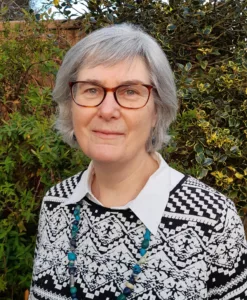 In order to address the climate and ecological crisis, we need to reduce our material consumption, is lecture will show how the lessons of wellbeing research and the lived experience of happily modest consumers can help us to prioritise what is really important in life.
In order to address the climate and ecological crisis, we need to reduce our material consumption, is lecture will show how the lessons of wellbeing research and the lived experience of happily modest consumers can help us to prioritise what is really important in life.
Dr. Teresa Belton studied Art History at the University of East Anglia 1971-1974, during which time she was a founder member of the UEA Eco-action Group. Later, she worked in a theatre, in community learning development, and undertook doctoral work into the influence of television on children’s story-making, leading to work as an educational researcher. She is the author of Happier People Healthier Planet: How putting wellbeing first would help sustain life on Earth
Lecture Recording (In 0:00-3:51, the first slides were not shown, please use the slides in Lecture Material)
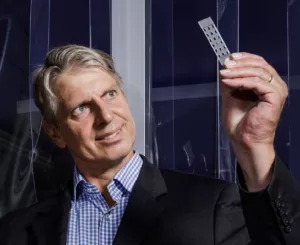
In our workshop, we use simple calculations to get to the bottom of the following questions:
What is the difference between terawatts and terawatt-hours?
How much energy do I need? How much can I take out of the earth?
How can I estimate my carbon footprint?
What measures can I take, what measures must society and business take to ensure the freedom of future generations?
Lecture Recording
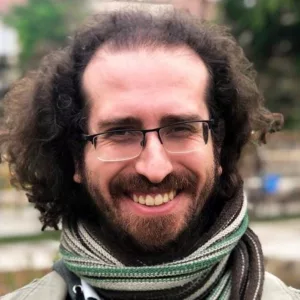 Psyche and Physis are ancient Greek words that are connected to the relationship between cognition of self dimension and environment. Climate change today is unexpectedly connecting this two concepts under a psychological condition related to the perception of an environmental phenomenon: ecoanxiety. How it can be framed into a renewed vision of human health connected to environment? This is particularly true for young generations that are more senstitive and affected by ecoanxiety, in a sort of evolutive trend being the world citizen of tomorrow.
Psyche and Physis are ancient Greek words that are connected to the relationship between cognition of self dimension and environment. Climate change today is unexpectedly connecting this two concepts under a psychological condition related to the perception of an environmental phenomenon: ecoanxiety. How it can be framed into a renewed vision of human health connected to environment? This is particularly true for young generations that are more senstitive and affected by ecoanxiety, in a sort of evolutive trend being the world citizen of tomorrow.
Domenico Vito, PhD Bio-engineer, worked as Researcher at the Metabolism of Cities Living Lab San Diego State University, observer of Conferences of the Parties since 2015 , Member of the Italian Society of Climate Sciences (SISC), Youtuber HubZine Italia for dissemination on international negotiations and organizer of the Climate Change Symposiums and Climate Social Forum. Since September 2021 he is co-coordinator and member of the scientific committee of the International Conference One Health Conference.
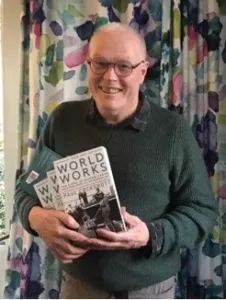
Paul Cockshott is a Computer Scientist and Marxist Economist. His CS research has covered special purpose machines, 3D TV studios, programming languages and video compression. In Economics he has done work on value theory, the foundations of historical materialism and the operation of planned economy.
Now retired from paid work he writes and lectures online. He previously worked in the Computer Industry and as an academic at various Scottish Universities. His two most recent books were How the World Works and Economic Planning in an Age of Climate Crisis.
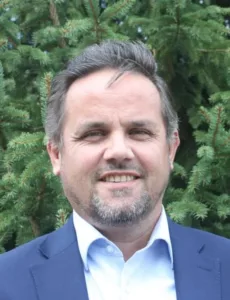 In this lecture we will discuss about the #DigitalArt4Climate COP28 edition, systemic innovation for all of society climate action empowerment in the context of the UNFCCC, potentials of blockchain technology for menaingful and rewarding youth engagement in climate action and (micro) climate entrepreneurship, our citizens’ climate action app development efforts in the context of the EU INTERREG Central Europe project JET4CE, our experiences with the COP27 (and COP28) Digital Innovation pavilion.
In this lecture we will discuss about the #DigitalArt4Climate COP28 edition, systemic innovation for all of society climate action empowerment in the context of the UNFCCC, potentials of blockchain technology for menaingful and rewarding youth engagement in climate action and (micro) climate entrepreneurship, our citizens’ climate action app development efforts in the context of the EU INTERREG Central Europe project JET4CE, our experiences with the COP27 (and COP28) Digital Innovation pavilion.
Miroslav Polzer is the founder and executive director at IAAI GloCha, a UN accredited social enterprise based in Klagenfurt/Austria which aims to get everyone, everywhere engaged in climate action with culture, technology and organizational innovation (including resource mobilization innovation). Miroslav Polzer is founder of the #DigitalArt4Climate program which engages global youth and global creative community in climate action with an art competition, blockchain technology (NFTs) based resource mobilization and related edutainment programs. Miroslav Polzer is also strategic director of the Climate Chain Coalition, which is the world’s leading network of organizations that work in the field of harnessing blockchain technology for enhanced multistakeholder climate action.
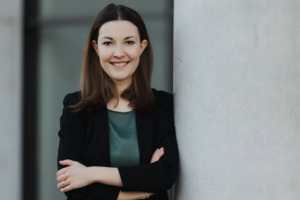 Climate scientists agree that the climate crisis poses an existential threat to humanity. Although this knowledge has now reached large parts of society, the collective climate protection measures taken are far from sufficient. What is holding back policy makers, society, and individuals from taking action? The talk will introduce various cognitive action barriers, such as the principle of cognitive dissonance, the bystander effect or the single action bias.
Climate scientists agree that the climate crisis poses an existential threat to humanity. Although this knowledge has now reached large parts of society, the collective climate protection measures taken are far from sufficient. What is holding back policy makers, society, and individuals from taking action? The talk will introduce various cognitive action barriers, such as the principle of cognitive dissonance, the bystander effect or the single action bias.
Clara Kühner studied psychology at LMU Munich (B. Sc.) and Bamberg University (M. Sc.). During this time, she held internships in various organizations in the fields of personal development and personnel selection. In 2022, she received her Ph.D. from the University of Leipzig, focusing on the connections between work and employee well-being.
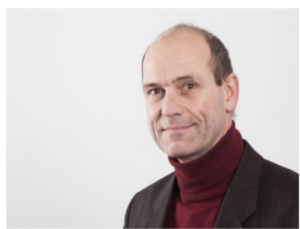
Prof. Balensiefen studied law and philosophy at the university of Tübingen where he received his doctoral grade too. Since more than two decades he practices as a Professor of Environmental, Building and Planning Law at the University of Applied Sciences in Biberach. There he established several years ago a climate protection management and a climate protection concept for the University in the program of the German Federal Ministry for the Environment “National Climate Initiative” (https://www.hochschule-biberach.de/campusklimaneutral).
Considering the global anthropogenic climate change with its man-made consequences, questions of motivation and means for taking actions arise:
Are we taking actions for reaching certain goals or are we acting to ease our personal conscience, to feel good or at least better? And: Does it mean that acting together requires that members of acting groups pursue the same purposes?
Depending on the positioning, the instruments of taking actions differ widely: should we move only within the frame of legal possibilities, or is there a concept of justice which legitimates even illegal behaviour? Or does the end, in the sense of preventing the world conflagration, justifies the means? And: What is the role of the scientific community in this? The operating system of science is, first, gaining and generating correct knowledge. Therefore, the theory-practice problem is inherent in it. But already in the Middle Ages the task of the professional faculties (jurisprudence, medicine and theology) was the practical implementation of knowledge, and modern professional faculties like engineering sciences, as well, are unthinkable without the perspectives of practical implementation. On the other hand, are there limits for the duty, or at least the allowance, to take actions in line with our scientifically based knowledge? In the normative scale, there is a broad range going from legal correctness over stressing the boundaries of legal admissibility up to civil disobedience or even violence towards objects or against people.
There is no panacea for all of these problems, but there is the possibility for critical differentiation and for drawing up crash barriers, which should help to prevent mispositioning that neither leads to achieve the overall goals nor to personal self- fulfilment.
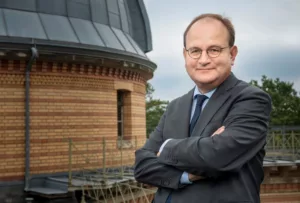 Climate policy today is facing both an ambition and an implementation gap. We need to realize that today’s decisions affect future generations and limit their options for action.
Climate policy today is facing both an ambition and an implementation gap. We need to realize that today’s decisions affect future generations and limit their options for action.
In the EU, we have committed to climate neutrality and net negative after 2050. With “Fit for 55”, probably the most important and comprehensive climate protection program has been launched. But there is no time for “regulatory fatigue”; the ESABCC recently launched the next phase of climate policy with its proposal on a 2040 climate target and GHG budget 2030-50. The question is whether the EU climate architecture is fit for net-zero. Climate neutrality means that residual emissions have to be balanced by removals. For this we need a new governance system (esp. due to non-permanence of many CDR options). The 21st century will have planetary waste management as a core task. The EU needs new institutions to cope with this challenge, especially a European Carbon Central Bank.
Ottmar Edenhofer is director and chief economist at the Potsdam Institute for Climate Impact Research (PIK) and director of the Mercator Research Institute on Global Commons and Climate Change (MCC). Furthermore, he is professor at the Technical University of Berlin and considered one of the world’s leading experts on the economics of climate change. His memberships include, among others, the German Academy of Science and Engineering acatech and the German Academy of Sciences Leopoldina. From 2008 to 2015, Ottmar Edenhofer served as Co-Chair of Working Group III of the Intergovernmental Panel on Climate Change (IPCC). Edenhofer’s scientific expertise is sought by policy and international organizations likewise. He has published articles in a number of peer-reviewed journals and authored a number of books. The fourth year in a row, Ottmar Edenhofer belongs to the 1% of the most cited scientists worldwide in the category “interdisciplinary science” according to the Web of Science citation index.
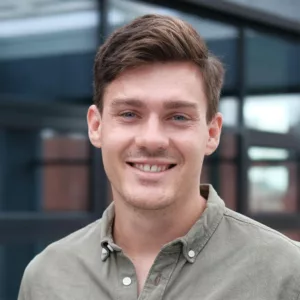
Niclas-Alexander Mauß is Co-Founder of CIRCULAR REPUBLIC at UnternehmerTUM, Europe’s largest center for start-ups and innovation. Over 10 years, he helped shape the transformation of Lorenz, a SME technology manufacturer, into a multiple award-winning pioneer of Circular Economy, including the German Innovation Award for Climate and Environment. He then initiated the CirculaTUM research network in 2020 as part of his doctorate at TUM and expanded it to become the largest of its kind in Germany, while at the same time managing an incubator at UnternehmerTUM. With CIRCULAR REPUBLIC, he connects UnternehmerTUM ecosystem together with large companies, SMEs and startups on the industrial and societal transformation to a Circular Economy.
With around 50 % of GHG emissions and 90 % of biodiversity loss linked to the extraction and processing of natural resources, the transformation of industry and society to a circular economy is key for the protection of climate and ecosystems. But even more than this, circularity is also a major factor for supply security and technological souvereignity in Europe and beyond. In his talk, Niclas-Alexander Mauss will give an introduction to the concept of a circular economy, show up action fields and potentials including examples from industry and startups, and explain in a deep diving case-study, how companies can transform themselves to circularity.
WINTER semester 23
- 22.11.22 #04 Dr. Martin Kueppers – Decarbonization of the industry sector: Required technologies and supporting policies
- 06.12.22 #06 Louis Uzor (Climeworks) – Carbon Capture & Storage
- 13.12.22 #07 Simon Pichlmaier & Valerie Ziemsky- How to get rid of emissions in transport and why this didn’t happen in the past
- 10.01.23 #09 Dr.-Ing. Michael Krause – Concepts and strategies for decarbonization of the building sector
- 17.01.23 #10 PhD. Laura Carotti – Sustainable use of resources in vertical farms
- 24.01.23 #11 Prof. Kirsi Niinimäki – The environmental price of fast fashion
- 31.01.23 #12 Dr. Mark Andor – The German 9-Euro-Ticket-Experiment – an Evaluation
Summer semester 22
- 12.07.22 Prof. Susan Clayton – Preparing for climate change: The role of psychology
- 05.07.22 Richard Wouters – Metals for a Green and Digital Europe
- 28.06.22 Prof. Dr. Steve Cohen – A Realistic Transition Environmental Sustainability
- 14.06.22 Marissa Santikarn and Rachel Mok – Carbon Pricing and Climate Finance in a Net Zero World
- 31.05.22 Ph.D. Rose-Ann Smith – Understanding and Navigating Climate Injustices in Small Island Developing States: The case of St. Vincent and the Grenadines (SVG)
- 24.05.22 Prof. Dr. Susanne Nothhafft – Protecting climate refugees. High time for a human-rights-based regime
- 17.05.22 Hanna Wang-Helmreich – Key players and the role of other actors and stakeholders in global climate governance: Who will save the earth?
- 10.05.22 Dr.-Ing. Christoph Pellinger & Dr.-Ing. Anika Neitz-Regett – Insights into the machinery room of the energy transition – science at the interface between politics and business
Winter semester 21
- 18.01.22 Modesta Nnedinso Abugu – Global Developments in Agriculture and Agricultural Biotechnology
- 13.01.22 Christian Maier – EWG: Turnaround in the heating sector
- 11.01.22 Dr. Elisabeth Dütschke – No savior in sight? Acceptance for changing socio-technical systems
- 21.12.21 Dr. Kepa Iturralde – Automation and Robotics for Refurbishing Existing Building Stock and Reaching Zero Energy Consumption in Buildings
- 14.12.21 Dr. Stefan Schäfer – Climate Geoengineering: Past, Present, and Future?
- 02.12.21 Prof. Dr. Stefan Rahmstorf – Kipppunkte im Klimasystem (german, requires TUM login)
- 30.11.21 Dr. Moritz Kühnel – Green hydrogen – challenges and opportunities
- 23.11.21 Dr. Philip Schütte – Responsible Cobalt Sourcing and Artisanal Mining – Challenge or Opportunity?
- 16.11.21 Dr. Paul Brockway – Chasing Fool’s Gold? A misplaced faith in energy efficiency to decouple energy use from GDP – recent evidence and implications for 1.5⁰C Paris target
- 09.11.21 Jim-Felix Lobsien – Limits of Human Ignorance
- 02.11.21 Wilhelm Cramer, Antonia Heinemann, Frederik Scholing – Grid Operation – The role of artificial intelligence (AI) in the transformation of the energy system
Summer semester 21 citycentre
- 02.06.21 Friederike Krüger – Climate change in the Artic – an expedition report
- 26.05.21 Dr. Rebecca Zitoun – Where should we start if we do not know where to start from?
- 19.05.21 Patrick Leòn Gross – How to Think with Doughnut Economics – and Put it in Practice in Berlin
- 12.05.21 Matt Muchna – Flood Justice in the United States
- 05.05.21 Anshuman Das – Small farm or big farm: who will feed the world?
- 28.04.21 Jens Benöhr – The Home River Bioblitz: Where Science and Activism Meet for River Conservation
- 21.04.21 Janna Kretschmar – “We protect what we love!” – A small grassroots NGO from South Africa shares their unique approach to environmental education
Summer semester 21 Garching
- 01.06.21 CO2: From Climate Killer to Sustainable Feedstock (Eric Schuler)
- 25.05.21 Sustainability Perspectives for Assessing and Designing Research, Projects and Policies (Alejandro Ceballos (Venezuela) and Jana Funk (Germany))
- 18.05.21 Learning Together – Towards Reciprocal Emancipation (Alejandro Ceballos (Venezuela) and Jana Funk (Germany)) (not publicly available)
- 11.05.21 Decolonization of Development – Insights into the Work from Epatu Konuko (Alejandro MCeballos (Venezuela) and Jana Funk (Germany))
- 04.05.21 Water Governance – A Key to Sustainability (Shahana Bilalova)
- 27.04.21 Forest Biomass Energy – Is it climate friendly and renewable? (Almuth Ernsting)
- 20.04.21 Ocean Energy – Potential and Current Status (Marcus Lehmann)
- Recordings of older semesters (German)


